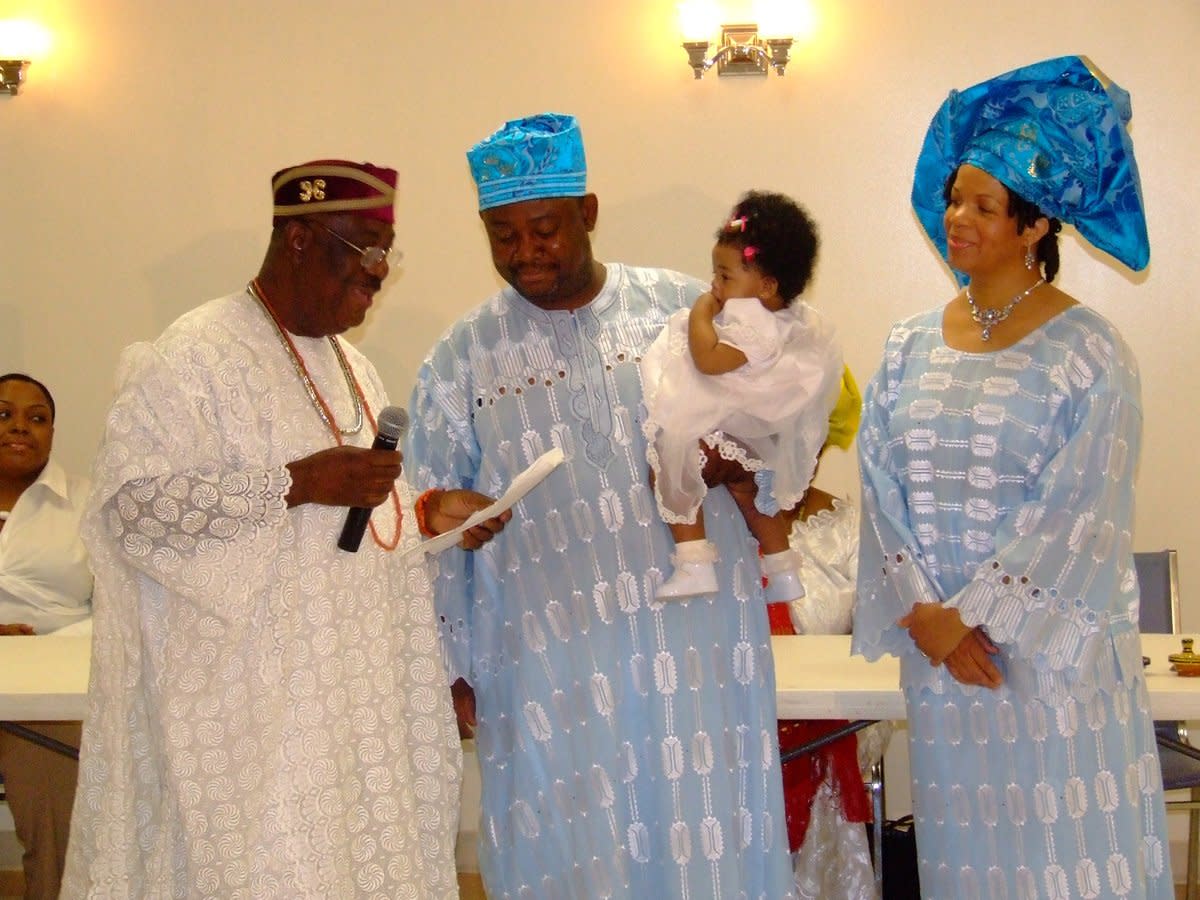
The Yorubas
They are one of the largest ethnic groups in Nigeria. They are concentrated mostly in the Southwestern part of the country.
It is said that among the Yoruba people, children could have as many as 13 names and these names can be a combination of three different concepts: the Amuntorunwa (the name the child brought from heaven); the Abiso (the christening name), including the Abiku names, and the Oriki (the attributive name).
Organised when the baby is 8 days old, the naming ceremony is held in the home of the paternal grandfather of the baby.
The oldest member of the family is given the responsibility of performing the ceremony on the day.
Like what pertains with the Akans, some key materials are needed before the child can be named among the Yorubas – they include; honey, sugar, kola nut, bitter kola, alligator pepper (atare), water, palm oil, sugarcane, salt, and liquor.
The honey and sugar represent sweetness and they also predict a beautiful life for the child. The rest of the materials are believed to have the power to make things happen in the life of the child.
A Priest or Alfa, depending on the religion of the child’s parents, blesses the child. A bowl is then set on the table where the parents of the baby are seated; anyone who wants to give the baby a name says a prayer, drops money in the bowl and says the name they wish to give to the baby.
Here are some of the Yoruba names and their meanings: Abiola, born in Honor or born during the first days; Abioye, the son of royalty or a variant of Abiola; Adebamgbe, royalty dwells within me and Adebiyi, the royal one.
The others are Adedayo – The crown has turned to joy; Ademola – Crown is Added to My Wealth; Adeniyi – The value or honour of a crown; Adepero – The crown has brought peace; Adesanya – My pains have been compensated with the arrival of this child; Adeshola – One who is crowned to bring wealth, and Adesola – A child crowned with wealth.









